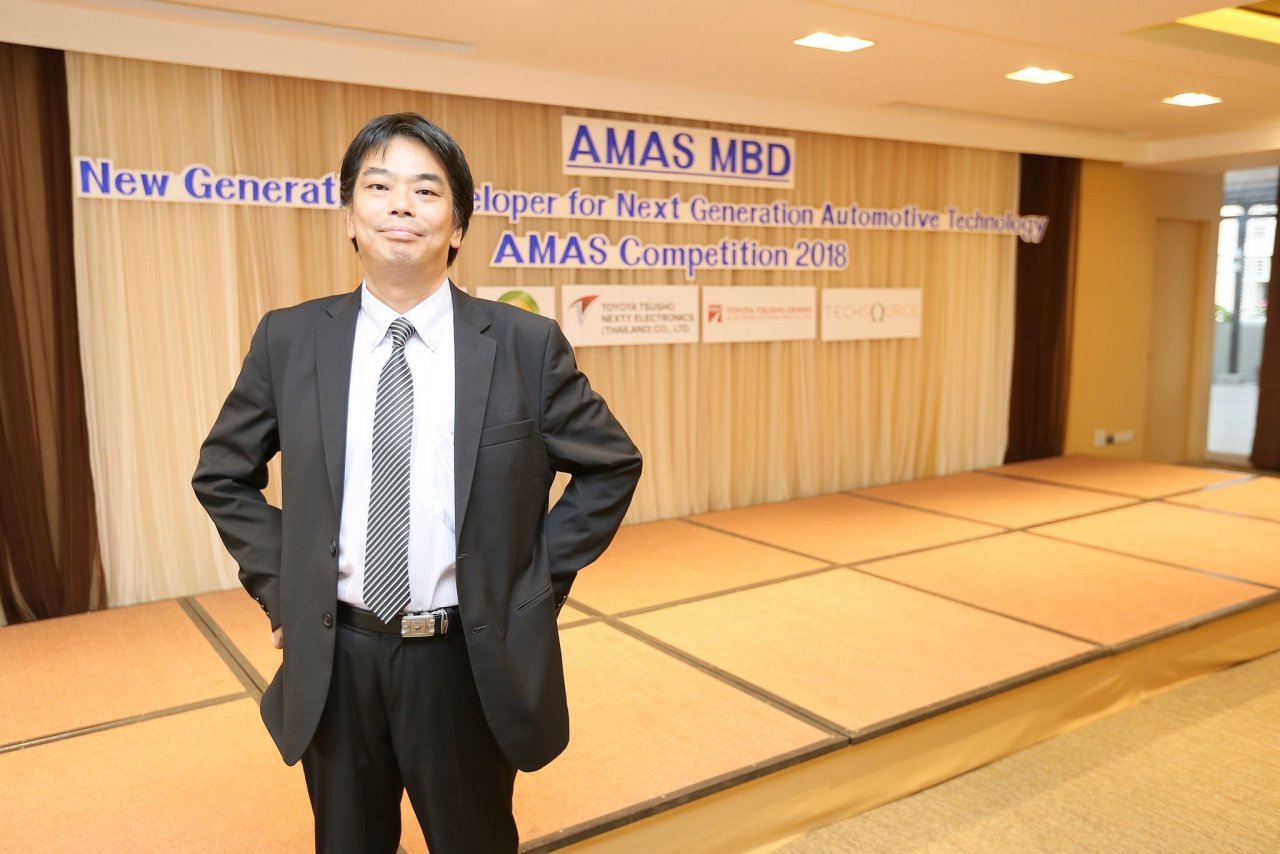Thailand a future hub for auto software
THAILAND has a lot of potential to become a hub of automotive software development in the Asia Pacific region, Koichi Okoshi, president and chief executive officer of Toyota Tsusho Nexty Electronics (Thailand) Co Ltd (NETH) said.
NETH’s main business is in-vehicle embedded software development. It uses Thailand as a base for automotive software development and exports such software to Japan.
Okoshi added that the technical skills of software development engineers in Thailand are comparatively high among countries in the region.
Atsushi Aoki, president of NEXTY Electronics Corporation, NETH’s parent company, said countries in Asia have adequate numbers of very proficient engineers, but he believes Thailand has the advantage of having been involved for several years in in-vehicle software development.
He added that built-in software for automotive use will grow together with improved production engineering. Therefore, if the manufacturing site of the vehicle and the design site of the software are separated, even if huge amounts of money are budgeted it might be difficult to efficiently develop embedded software.
He said that for the past nearly 15 years, Japan and Thailand have grown together, especially in hybrid vehicles and electric vehicles, which utilise embedded software for automobiles.
Aoki said that Japan is now a hub for in-vehicle software development as Japanese vehicle manufacturers have been successful in creating the Blue Ocean by themselves and launched products in the market ahead of competitors, while major software companies in the Asia-Pacific region are developing software for existing markets.
“In addition to that, our Kaizen sprit – the spirit of continuous improvement – is reflected in the business. We believe that makes customers highly satisfied with Japanese-made cars. Therefore it is no surprise that Japan has become a hub for in-vehicle software development as “we have created what the market is seeking”.
When asked how NETH plays a role in helping Thailand achieve the goal of becoming a hub of automotive software development in the Asia Pacific region, Masami Ikura, NETH’s chief technology officer, said: “We are playing a great role in nurturing excellent engineers of tomorrow, by providing them opportunities to get a great deal of experience in our company.
“Those experiences will help them become key players for enhancing their presence in Thailand in the future. To that end, we would spare no effort to provide cooperation for cultivating embedded system engineers in major universities in Thailand,” he added.
He said that in-vehicle software development directly affects the lives of drivers and passengers. Even a small mistake may endanger their safety. Therefore, persistent efforts and strong motivation to produce better things are imperative.
Meanwhile, Okoshi added that various experiments have been conducted to realise autonomous driving in western countries and Japan.
“We will do our best to make autonomous driving possible even in Thailand, so that we can contribute to the country,” he added.
In early April, NETH together with its private and state partners, organised its second annual student meeting on Automotive Embedded System, welcoming university students to show their talents on software development to control autonomous vehicles.
The contest is aimed at stimulating human resource development in automotive software to serve the advent of the “Future Automotive” era. Twelve software teams, selected from universities around the nation, participated.
The winning team was LKB48 from King Mongkut’s Institute of Technology Ladkrabang, while the first runner-up was Double E team from King Mongkut’s University of Technology North Bangkok. The team Antman from King Mongkut’s University of Technology Thonburi was the second runner-up and also received the Good Design Award.
Source: http://www.nationmultimedia.com/detail/Economy/30344732


 English
English




